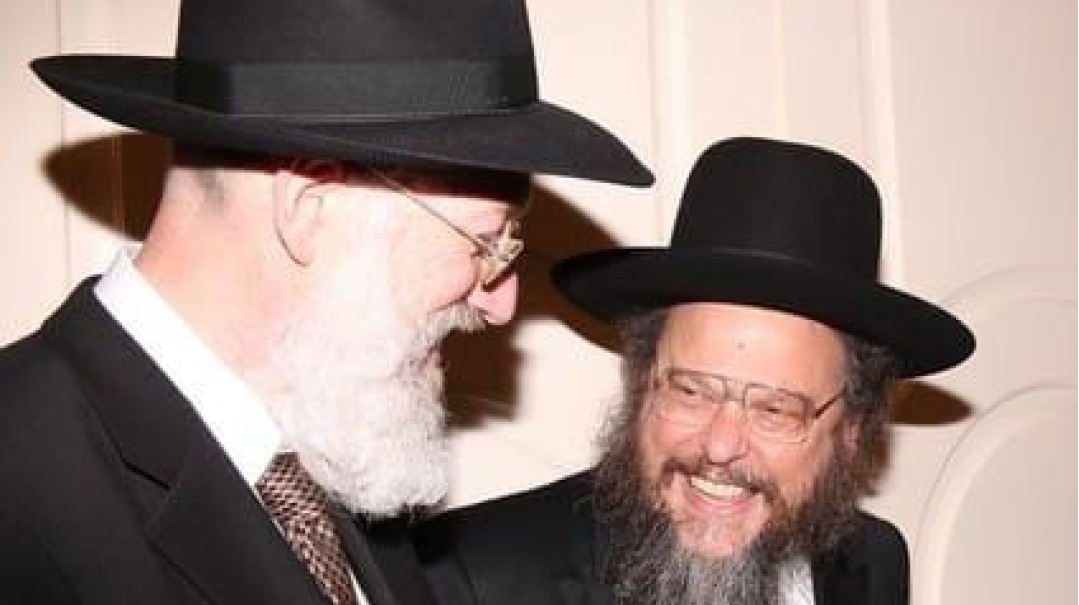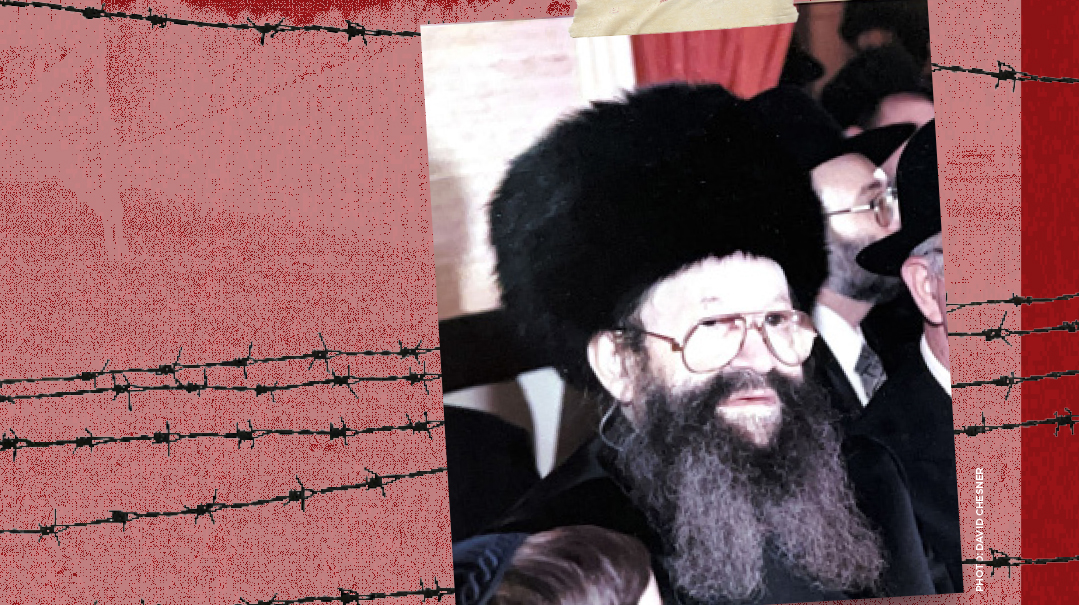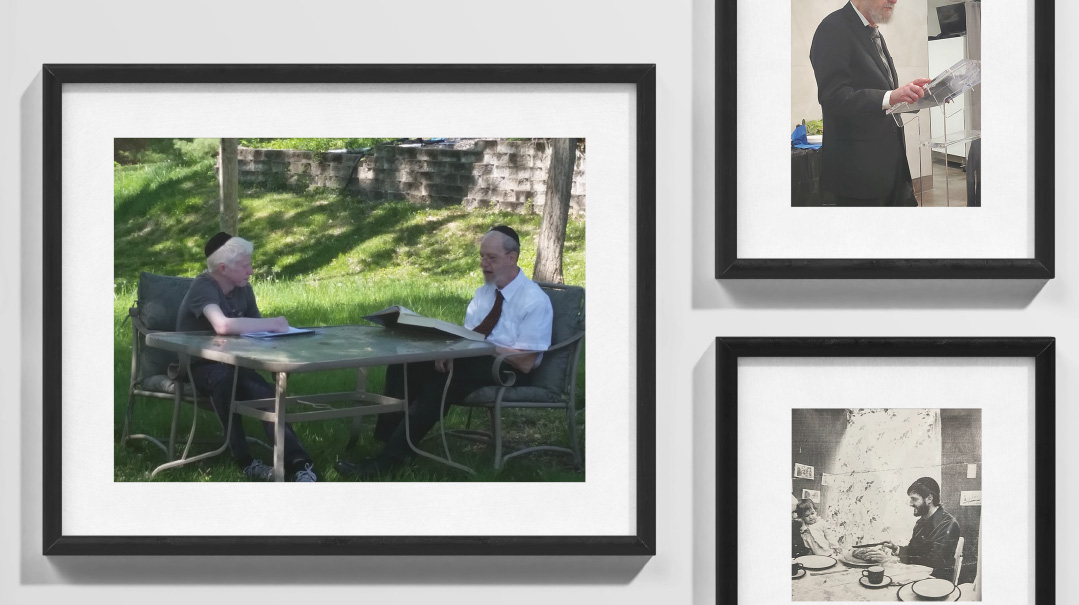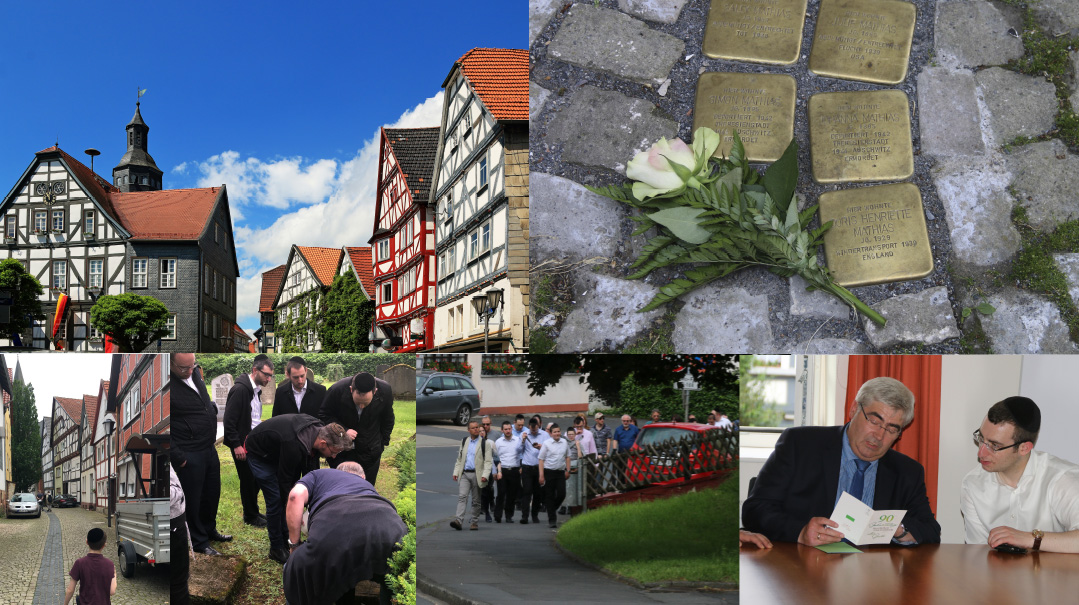Saving the Succah
| October 13, 2024BLOOD! Had I made a mistake in coming? I didn’t know if I could bear seeing that
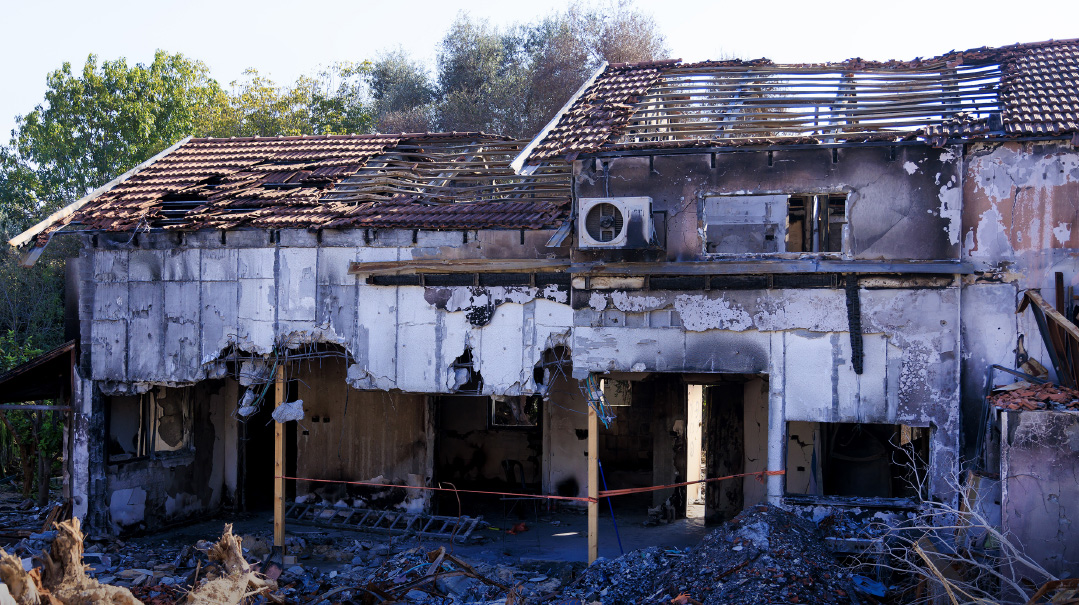
Photo: Flash90
I
had a limited time in Israel to do volunteer work and I wanted it to be something meaningful. But when I told my grown children that I’d volunteered to clean houses that were invaded by terrorists on October 7, their reaction was along the lines of, “Mommy… are you kidding? Can’t you just pick fruit or make sandwiches or pack care boxes like other bubbies your age?”
Yet doing something for the families who had been displaced appealed to me. A good friend, Miriam, had told me about the project to clean houses on kibbutzim. It helped kibbutzniks to return to a spotlessly cleaned home. It brought relief and was a small kindness for these pained, heroic communities.
So there I was, on a very early Tuesday morning, on my way down south with Miriam and two other volunteers. The car was filled with lively, animated Hebrew conversation, but I was just trying to concentrate on where we were going. For the past few months, the massacre had dominated my news feed, from horrific pictures to devastating eyewitness accounts. My heart was pounding.
Miriam seemed to sense my growing anxiety and gave my hand a squeeze. We had grown up together in a small Jewish town, but as a young married woman Miriam had moved to Israel. Now she had children, children-in-law, and grandchildren serving in the army. I davened for them every day, but what could I say to this strong woman who woke up every morning to the nightmare of not knowing if her family was safe?
After a two-hour drive, we arrived at the kibbutz and were waved in by a guard. I was instantly struck by the absolute, utter quiet. There were no sights or sounds of adults or children going on with their normal lives. It was a ghost town.
We met up with four other groups and were given the bare minimum of instructions. Please clean with caution. Try to be as respectful as possible. No pictures should be taken to post on social media. Oh, and be aware that some walls will be splattered with blood. The look I gave Miriam when the group leader said that spoke volumes. BLOOD! Had I made a mistake in coming? I didn’t know if I could bear seeing that.
We were given our house assignment, industrial cleaning products, and off we went. We had to move quickly — by one o’clock, the heat would make our work unbearable. Our leader told us to start with the outside of the house.
Everything was covered in thick layers of dust. We sectioned off different areas. I was given a part with numerous shelves. There were books and art projects and skates in different colored, covered bins. Seeing a bright yellow plastic Lego box stole my breath away. I had recently bought the same one for my grandchildren. To think that these children had fled their home a few months before while my grandchildren were playing with their own set, safely ensconced in their home in the States! The dichotomy was mind-blowing.
I cleaned the dust from the boxes, shelves, and kids’ table and chairs until they shone. It was then that the ‘background’ noises started. And by that, I mean the sounds of explosives in the very nearby Gaza. Each time a bomb exploded, I said a silent tefillah that it wasn’t our precious soldiers in harm’s way. For some odd reason, the constant blasts did not frighten me. I was determined that those terrorists were not going to scare away this bubby.
When I finished, I went looking for Miriam, who had been cleaning the lawn. She showed me something she had found: a cloth covered with mud and dirt and leaves. We spread it out, and lo and behold — it was a decorated sheet that made up one side of the family’s succah. The surviving kibbutzniks had been evacuated immediately and didn’t have time to take down their succahs.
Mixed emotions hit us hard. Here we were, holding a piece of October 7 in our hands. I can’t describe in words what holding that tangled succah sheet meant to us. This was an essential part of our recent Jewish history. We quickly took a picture to make sure we would never forget what we had found.
The group leader came out right after and said we needed to start working inside the house. She saw what I was holding in my hand (I don’t think she realized it was part of a succah) and promptly threw it in a large black bag filled with garbage. I was horrified, but didn’t know what to say. I sneaked it out of the bag and hid it under my knapsack. Then, into the house we went.
Even knowing that we had permission from the homeowners to enter their homes, I still felt like a voyeur. From a few family pictures that were not yet stored away, we could see the faces of a lovely, happy family who had lived here.
The room I worked in obviously belonged to a teenage girl. Cute posters and artwork adorned one of the walls. I tried to send her a heartfelt, telepathic message apologizing for entering her domain and wishing her happiness in her new home, wherever that might be. It took a few hours to really clean the mostly emptied room, but I did it with a vigor that I usually save only for Pesach cleaning.
We worked in silent concentration, no chitchat or joking around. I remembered a conversation I once had with a good friend who worked for the chevra kaddisha. She described the respect and reverence they had for the meis and how the taharah was done with the utmost tzniyus and quiet. That was how I felt cleaning the house that day, as though the “meis” was this small, beautiful home.
When we finished, our group leader stayed in the house to do a final sponga. I went outside and met the person in the kibbutz who was overseeing the cleanup of all the homes.
I sheepishly took out the succah sheet and asked him if I could have it. Grinning (and probably wondering about this wacko American he was dealing with), he said to me, “Geveret, you don’t need that for your succah! You can buy a new, clean one in town!”
Miriam intervened. “No,” she said. “She feels that this is a holy item, and she doesn’t want it to be thrown away.”
The man shrugged. “If you don’t take it, we’ll throw it away.”
I put it into a clean garbage bag and took it with me.
When I got back to my apartment, the first thing I did was put the succah sheet in the washer and dryer with hot water and a lot of detergent and softener. When I took it out of the dryer, it still had permanent dirt stains and mold, but I didn’t want those — evidence of what had happened on October 7 — to be erased.
My husband photographed the succah sheet, and we were both struck with awe at the piece of history we had in our possession. It had been buried under a bush for the better part of a year, yet here it was, whole and intact — a physical testament to how Jewish tradition and the Jewish people would always be there.
I lovingly folded up the succah sheet and decided that I would keep it in Israel in case the family would want it back one day. If Hashem meant for them to have it back, I knew He would find a way.
(Originally featured in Family First, Issue 915)
Oops! We could not locate your form.


